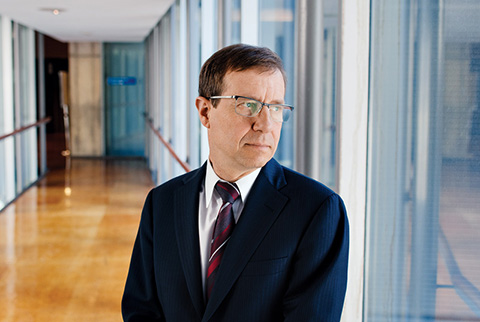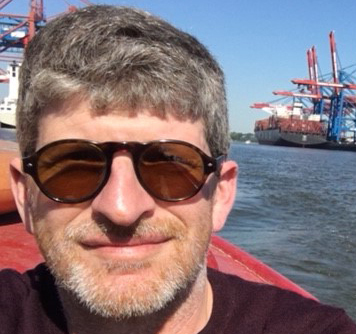Arguably more than any of his predecessors, Toronto city manager Peter Wallace (BA 1980 New College, MA 1981) has inserted himself most visibly into the endless debate about how a sprawling 33,500-employee municipality should, well, make ends meet.
Soon after he took the top job, in 2015, Wallace – the former top civil servant for the Province of Ontario – began warning the mayor and members of council that they were running up the municipal credit card, and that the pattern of city expenses and revenues was approaching unsustainable levels. He circulated a PowerPoint deck with a pointed graphic showing an iceberg in profile, its submerged nether regions representing billions of unfunded commitments. He told the politicians to brace for a long-term fiscal plan meant to encourage them to raise taxes or reduce spending or a combination of both – something Toronto councillors notoriously avoid. Wallace delicately refers to this most political of choices as “the gap between service aspiration and the financial capacity to deliver.”
One day in February, the slight 59-year-old runner sat in his City Hall office and pondered the unfamiliar business of reading politicians the riot act in public – an always precarious position for the civil servants who report to them.
“It’s a different role,” muses Wallace, picking his words carefully. In his previous job, as Ontario’s cabinet secretary, he could fire off his warning shots behind closed doors. But because city managers report to council in public, Wallace no longer enjoys the luxury of discretion. “I don’t believe I should provide advocacy,” he says. “Your agenda is the agenda of excellence.” Still, it’s a tough message.
Wallace is known around City Hall as a policy nerd with little patience for sloppy reasoning. He comes by his understanding of government honestly: Determined from his teens to work in policy, Wallace enrolled at U of T in 1976, studying political economy and then public administration, with the likes of political scientist C.B. Macpherson and economist and public servant Douglas Hartle.
After graduating, Wallace soon began working for the Ontario civil service, where he remained until 2014. When he stepped away for a teaching gig at U of T’s School of Public Policy and Governance, Wallace had gained experience with a wide array of policy files, from energy to wildlife to trade policy. (He had led the province’s investment in the auto industry after 2008 and advised Ontario during its transition to the HST.)
Wallace insists – and it is not difficult to believe – that he draws on the public administration skills he learned during his master’s degree every day he comes to work. He quickly reels off a description of how he evaluates policy problems, filtering them through lenses of economic, governance, legal and political impact. All the while, adds Wallace, he keeps an eye trained on dissidents within the civil service and public because, as he noted, “they have some insights that are really important. You’ve got to pay attention to groupthink. You can’t make up your mind and exclude the critics.”






